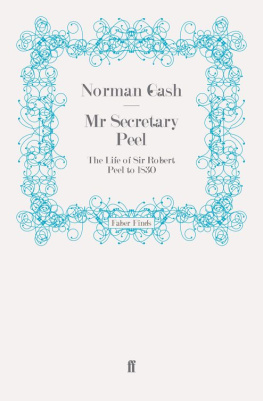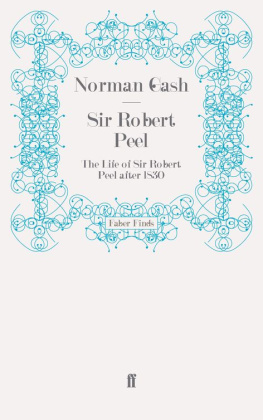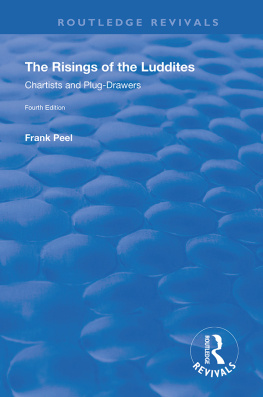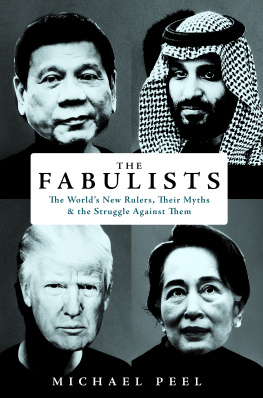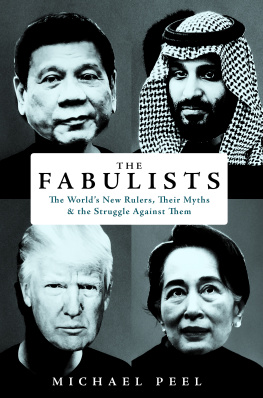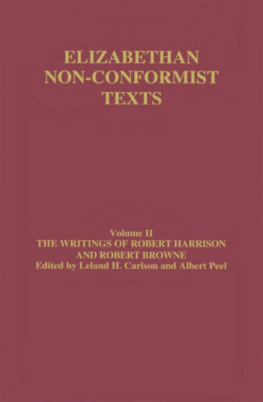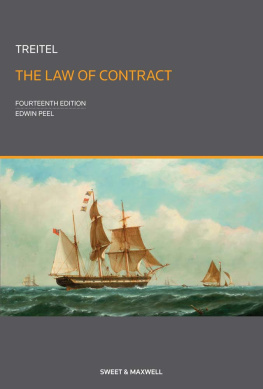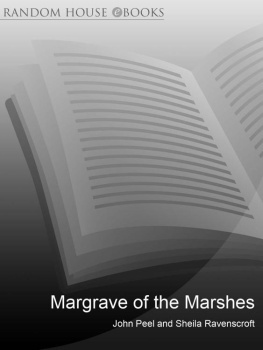Norman Gash - Mr Secretary Peel: Robert Peel 1788-1830
Here you can read online Norman Gash - Mr Secretary Peel: Robert Peel 1788-1830 full text of the book (entire story) in english for free. Download pdf and epub, get meaning, cover and reviews about this ebook. year: 2011, publisher: Faber & Faber, genre: Politics. Description of the work, (preface) as well as reviews are available. Best literature library LitArk.com created for fans of good reading and offers a wide selection of genres:
Romance novel
Science fiction
Adventure
Detective
Science
History
Home and family
Prose
Art
Politics
Computer
Non-fiction
Religion
Business
Children
Humor
Choose a favorite category and find really read worthwhile books. Enjoy immersion in the world of imagination, feel the emotions of the characters or learn something new for yourself, make an fascinating discovery.
- Book:Mr Secretary Peel: Robert Peel 1788-1830
- Author:
- Publisher:Faber & Faber
- Genre:
- Year:2011
- Rating:4 / 5
- Favourites:Add to favourites
- Your mark:
- 80
- 1
- 2
- 3
- 4
- 5
Mr Secretary Peel: Robert Peel 1788-1830: summary, description and annotation
We offer to read an annotation, description, summary or preface (depends on what the author of the book "Mr Secretary Peel: Robert Peel 1788-1830" wrote himself). If you haven't found the necessary information about the book — write in the comments, we will try to find it.
Mr Secretary Peel: Robert Peel 1788-1830 — read online for free the complete book (whole text) full work
Below is the text of the book, divided by pages. System saving the place of the last page read, allows you to conveniently read the book "Mr Secretary Peel: Robert Peel 1788-1830" online for free, without having to search again every time where you left off. Put a bookmark, and you can go to the page where you finished reading at any time.
Font size:
Interval:
Bookmark:
TO
I.D.G.
MULTARUM RERUM MEMOR
How miserable is all worldly business, take it for a course of time, that is not carried on by men who make a conscience of what they do in it.
SPEAKER ONSLOW
I am grateful to the Leverhulme Trust whose research grant first made this book possible and to the Court of St. Andrews University for additional financial aid.
Much of the work was done in Ireland and it is a singular pleasure to record the wide and hospitable assistance given to me by the officials of the Public Record Office of Ireland, the State Paper Office, the National Library, and the Royal Irish Academy; and of the Public Record Office of Northern Ireland, the Linenhall Library of Belfast, and the County Museum, Armagh. My debt to similar institutions on this side of the water is too long to be recapitulated; but I must thank the staffs of the National Register of Archives, the Public Library at Tamworth, and not least St. Andrews University Library for services that went beyond official duties.
My indebtedness to individuals is even deeper. Some are mentioned elsewhere; to others this is the only place where I can express my obligation. The Rt. Hon. the Earl Peel and Countess Peel, the late Hon. George Peel and Lady Agnes Peel, and G. F. Peel, Esq., allowed me access to family papers, portraits and other relics in their possession and gave constant assistance and encouragement. I am particularly grateful to Earl Peel for permission to use reproductions of the paintings at Hyning Hall as illustrations for this volume. My acknowledgments are also due to the governing body of Christ Church, Oxford, to their sometime librarian Mr. G. Bill, and to Mr. Steven Watson, for providing facilities for consulting the college archives. Dr. Edith Johnston gave me not only the benefit of her expert knowledge of eighteenth-century Irish administration but assistance on many other points; Mr. J. L. J. Hughes of the Public Record Office of Ireland allowed me to read his unpublished work on the Chief Secretaries of Ireland; Mr. C. Collyer kindly put at my disposal transcripts from the Canning Papers at Harewood; the Professors of Humanity and Greek in this college in various classical matters helped their less learned colleague; the Rev. Cyril Bishop sent information from the parish registers of Drayton Bassett; Professor T. W. Moody of Trinity College, Dublin, and my old friend Mr. A. J. Taylor aided in a number of enquiries.
Another friend, Dr. G. Kitson Clark, read the first draft of this book and discussed with me many of its problems. My obligation to him cannot easily be measured.
N ORMAN G ASH
St.SalvatorsCollege
St.Andrews
February1960
SIR ROBERT PEEL, first baronet
from the painting by Sir Thomas Lawrence, P.R.A.
ROBERT PEEL,
aetat. 37 from the painting by Sir Thomas Lawrence, P.R.A.
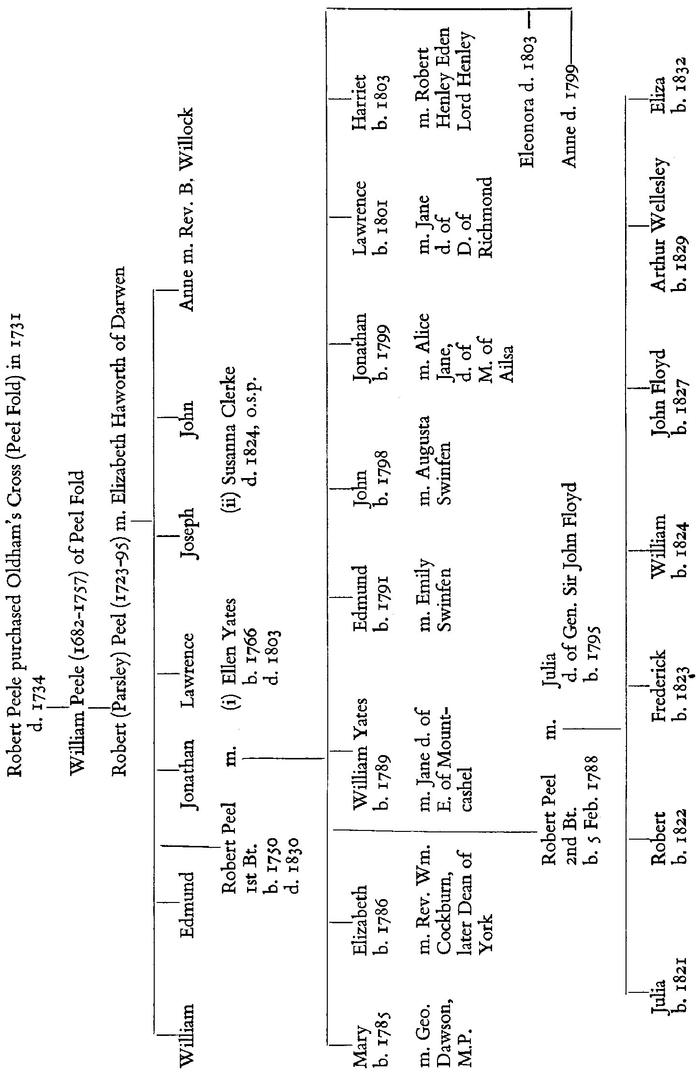
English history has been at once adorned and domesticated by great familiesCecils, Churchills, Howards, Percys, Russells, the Pitts, Greys, Pelhams, and Foxeswhose services to state and society bridge the centuries and link one era with another. The Peels were late-comers on the national stage; yet their secular achievement in the century that followed the great war against Napoleon can stand the rivalry of any others. To have produced in four successive generations an industrial millionaire, a Prime Minister, the owner of a Derby winner, a Speaker of the House of Commons, a V.C., and a Secretary of State for India, is a varied and remarkable record. The achievement was the more striking because of the rapid rise of the family from obscurity to fame by their own efforts and talents, unaided by royal and aristocratic patronage or the chance favours of military fortune. English society has always been kept healthy by its social fluidity. The rise and fall of families and classes has acted as a kind of political metabolism; fresh energies have been released, exhausted elements reabsorbed, which unassimilated or retained might have endangered the body politic. The Peels are a notable example of this perpetual process of social readjustment. The third Robert Peel, who became not only Prime Minister but the greatest statesman of his time, was the grandson of a man who started life as a small Lancashire yeoman farmer. Between them lay the cotton revolution of the late eighteenth century which made his fathers fortune. But so close in time was the Prime Minister to his social origins that his life in politics was largely conditioned by the forces which produced his familys wealth. The same historical process created both the economic revolution and the man who did more than any other single figure in politics to lessen its impact on society and to reconcile the new industrial elements with the older framework of aristocratic government.
But between the first and third Robert Peel came the second; and in the history of the Peel family he was the decisive figure. It was he that broke through the respectable anonymity of the prosperous middle classes into the real ruling class of the country. From working with his own hands at cotton-mills, bleaching-grounds and clerks ledgers, he became (alone of his fathers family) an M.P. and a baronet, and he ended his life as a wealthy landowner and fundholder . His father had put his sons to industry, trade, and finance; he placed his own children in the traditional occupations of the aristocracypolitics, the army, the law, the church, the land. Yet this social transformation was accomplished with no marked change of intellectual outlook; and the other significant aspect of the first Sir Robert Peel was the social conservatism which preceded as well as accompanied his upward progress. The Protestant, Anglican, conservative middle-class Peels were merely transmuted by his wealth into the Protestant, Anglican, conservative upper-class Peels of the third generation. English politics were enriched, in the person of his eldest son, by a family tradition which was originally nurtured in the rural isolation of pre-industrial Lancashire. The activities of Sir Robert himself, both in his pioneer work for the reform of factory conditions and in his brushes with the radicalism of a young and disorderly industrial society, form a kind of rough sketch for the large political canvas of his sons career.
Yet with the continuity there were also differences. The opinions of the first Sir Robert were those of a prosperous industrialist, firmly rooted in his personal experience of life. A self-made man, he drew his ideas from his own environment and from his practical observation of men and affairs. If the environment and observation were alike limited, they were nevertheless directly related to life as he lived it. His economic theories were derived not from books but from business. His charitable but restricted legislation for factoryapprentices and cotton-mill children, his desire for greater freedom of trade from tariffrestrictions, his consistent support for an inflationary paper-money system, were all the empirical fruits of his own career. To the end of his life he preferred to find things out for himself, and to pick up information from persons rather than paper. His great object, wrote one of his Staffordshire neighbours, appeared to me on all occasions to be the procuring information, by collecting in his intercourse with mankind all he could. His manner was to appear as knowingnothing and trying to make you In his temperament and views the first Sir Robert Peel was essentially a creature of nature.
Font size:
Interval:
Bookmark:
Similar books «Mr Secretary Peel: Robert Peel 1788-1830»
Look at similar books to Mr Secretary Peel: Robert Peel 1788-1830. We have selected literature similar in name and meaning in the hope of providing readers with more options to find new, interesting, not yet read works.
Discussion, reviews of the book Mr Secretary Peel: Robert Peel 1788-1830 and just readers' own opinions. Leave your comments, write what you think about the work, its meaning or the main characters. Specify what exactly you liked and what you didn't like, and why you think so.

